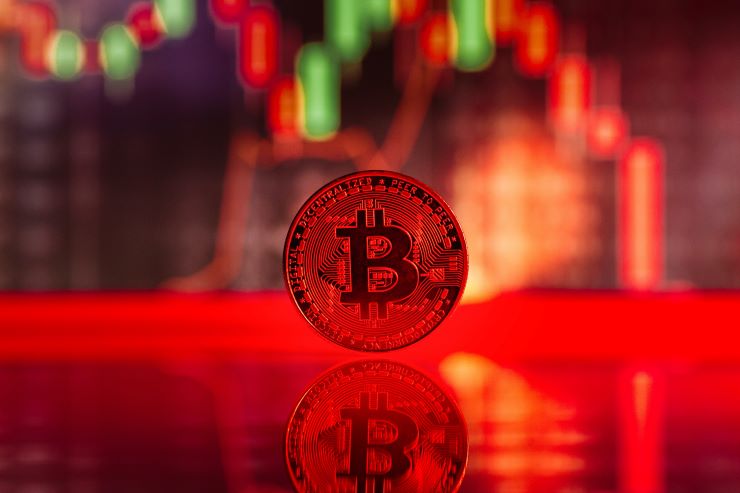
AGEFI Luxembourg
To some, however, this debacle was highly predictable and it was only a question of time before other cryp- tocurrency focus related companies followed the same fate as Luna and its stablecoin based terraUSD with their 40 billion dollars collapse, earlier this year.
Many voices have, once more, made themselves heard and the pleas for more control and regulation are now stronger than ever yet not unseen after similar “crypto-disasters”. Nevertheless, it seems as though things are somewhat different this time.
A stunning realization
“It’s unregulated and I believe it needs to find its way into regulations because there’s so many customers, investors and partners like us that have been left in utter disbelief at what has happened.
FTX’s involvement within the universe of sport does not stop there. Tom brady, Shaquille O’Neal, Stephan Curry, Naomi Osaka, the Major League Baseball, the Miami county – to name a few – all had business deal- ings of some sort with the platform. Furthermore, the San Francisco located NBA basketball team, the Golden State Warriors as well as the Miami Heat got impacted as well. The latter having had recently shaken hands with FTX on a 135 million dollars deal which entailed renaming the Heat basketball court in honor of the cryptocurrency exchange until 2040.
The island of Bahamas also had great plans to which FTX was central; they were once counting on big eco- nomic spinoffs and piggybacking on using the com- pany’s apparent success and notoriety to lure other crypto companies and have them relocate there. Today, they are left to pick up the piece.
“I am deeply sorry that we find ourselves in this cur- rent situation” wrote Galois Capital co-founder Kevin Zhou after admitting to investors that half his com- pany’s capital had been placed on FTX, in an official letter. Zhou is well known within the cryptocurrency spere as he was once credited with being one of the first to point out the first signs of what turned out to be Luna’s downfall. To this he added: “We will work tirelessly to maximize our chances of recovering stuck capital by any means”, knowing it could take years to recover even a fraction of the lost assets.
Indeed, a white-collar crime prosecution is far from straightforward even though there are exceptions – such as the Madoff scandal – where the prosecution was mostly fueled by the public opinion and the fact the US government wanted to limit the financial in- dustry discredit which arose from the fraud. Yet, in our current case, it will somewhat difficult for prose- cutors to establish jurisdiction and intent in order to make it “stick”.
The absence of regulatory safeguards is beyond belief
FTX also quickly got busy and became involved with politics. Indeed, the company acquired a townhouse on Capitol Hill where a myriad of cocktail parties took place. The objective of these get-togethers was none other than try and influence regulators and politicians through campaign donations as well as having law makers directly write to the SEC to dis- regard any preliminary fact finding elements per- taining to the Bahamas based exchange, with the help of their once newly hired head lobbyist, the for- mer CFTC head council.
It all looked like a well-oiled seduction machine and many wondered then how well would a company with no physical presence in the USA yet with a ma- jority its customers base from the latter nationality would fare, on a subject as regulatorily sensitive (or lack of thereof) as cryptos. Well, it went as bad as one could have guessed.
As John J. Ray III’s perusal into the company financials continues, a trove of incredible discoveries follows suit. As it turns out, none of FTX previous financial re- porting documentations are to be trusted. Indeed, Ray believes that the integrity of both the systems and the regulatory supervision have been compromised. Ad- ditionally, he notes that a small group of individuals which he suspects to be potentially corrupted and unfit to be managing the firm – had full control of the company.
More irregularities were also found regarding ques- tionable loans from FTX towards SBF’s many other companies, when they were to remain distinct from each other’s. SBF is also reported to have been roman- tically involved with the CEO of Alamenda, a com- pany he previously created and which was the recipient of a 10 billion dollars loan, directly from FTX.
The plot thickens as there is also the mention of mys- terious and unauthorized transfers from FTX’s own virtual wallets, a drainage totaling more than half a billion dollars shortly before midnight, on the same day of the Chapter 11 announcement. None of the company’s ex-officials seem to know what truly hap- pened there and appear to put the blame on a coordi- nated hacking operation.
The cherry on top of the cake is doubtlessly the fact that FTX was never truly audited and probably may have reported fictitious figures as it pertained to its fi- nancial health.
The plethora of these shocking revelations is still rais- ing eyebrows all around the globe and it is hard for some of the victims to understand how this scheme was permitted to continue.
Who is to blame then?
However, what we saw unfold could only occur be- cause of a lack of a dedicated cryptocurrency related regulatory framework, which – if it existed – would have successfully lured companies like FTX into reg- istering into the US. Things would have therefore been vastly different if these exchanges had to observe dis- tinct sets of regulatory standards, as for any other ac- tive financial institution. In addition, the need to draft dedicated consumer protection laws might in fact not at all be warranted. The damage done is such that the investment world has now freshly been reminded of the dangers. For how long ? Only time will tell.
We are clearly at the limit of the “free market” dogma, which advocates that less regulation is best for the market. It is also getting pricier and pricier for investors, venture capitalists to “invest” into what they believe to be the next breakthrough and which will help get rich overnight. Some investment discipline and the introduction of a poised and prag- matic approach when considering investments of this sort might also help reduce the financial impacts on victims.
AUTRES ACTUALITÉS EN RISK & FINANCE
Banque à réseau versus banque à zéro : qui écrira l’histoire ?
Paru dans Les Echos
EUDIW : enjeux et conséquences du portefeuille d’identité numérique de l’UE sur le secteur bancaire
Paru dans Le Journal Du Net
L’inclusion financière, un levier pour les banques
Paru dans Revue Banque




